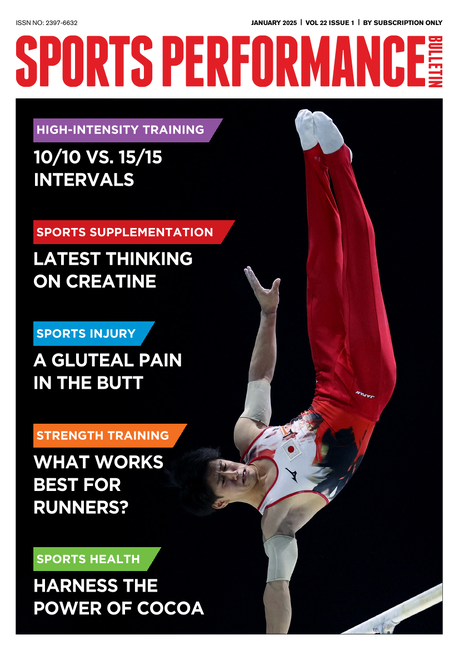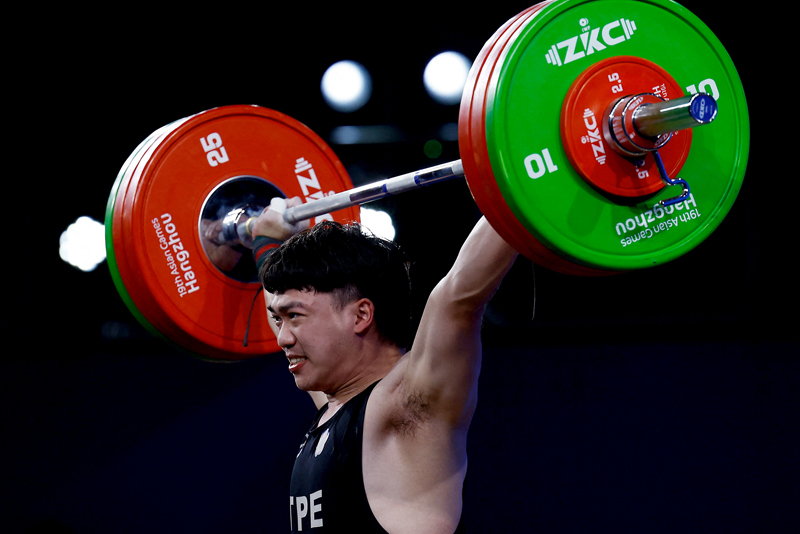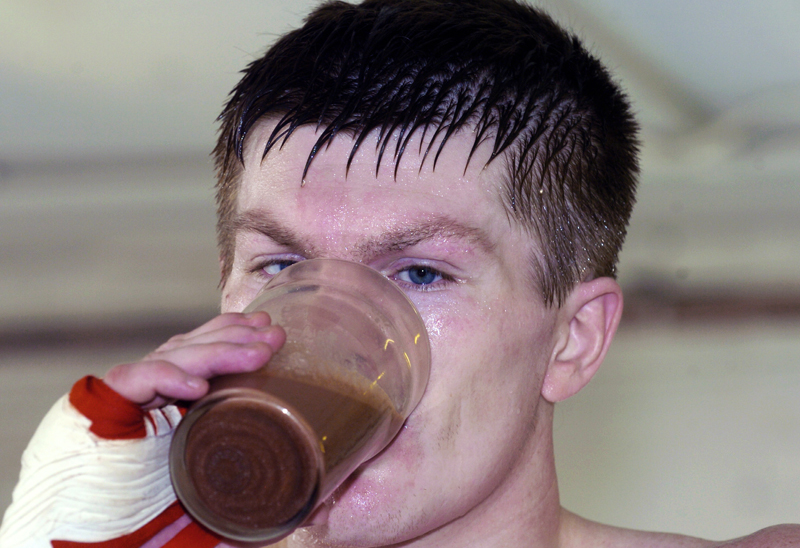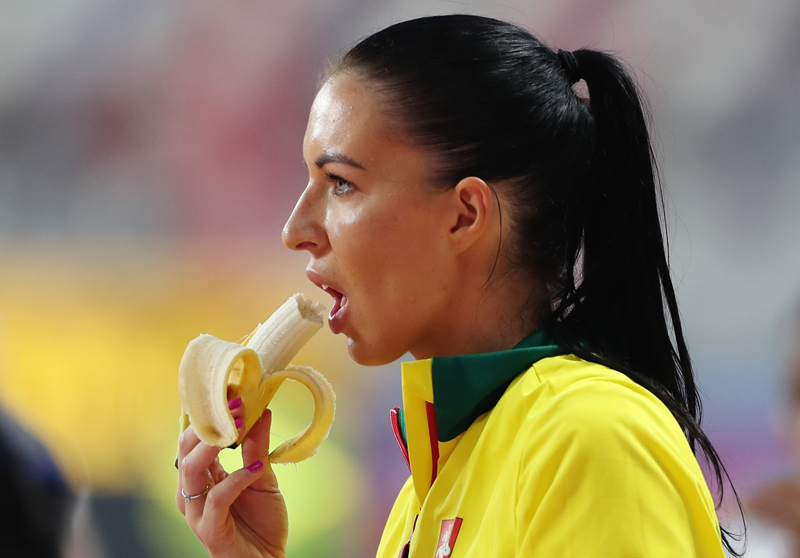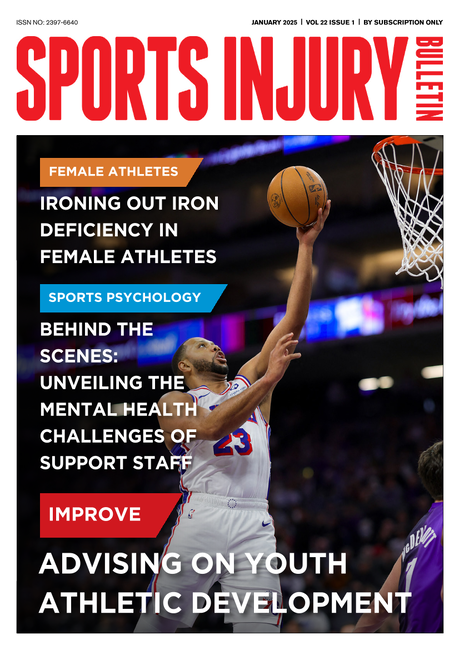You are viewing 1 of your 1 free articles. For unlimited access take a risk-free trial
A morning cuppa for recovery

Unlike many sports supplements on the market, caffeine has been rigorously tested and proven to improve endurance performance – especially during longer events. By stimulating the central nervous system, caffeine can fight fatigue, which helps maintain performance during the later stages of exercise. In recent years, caffeine has been further investigated, and studies suggest that as well as fighting fatigue, it may also be able to suppress pain during exercise. The very latest research goes one step further and indicates that the caffeine’s benefits may be even more extensive, reducing soreness and increasing muscle function during the recovery period.
Beating muscle soreness
This basis of this latest thinking stems from research into the effects of caffeine intake on perceived muscle soreness and lower limb function following an endurance cycling event. In one study, a group of cyclists were split into two performance-matched groups; both were asked to complete the same 164-kilometre riding task but with a different recovery protocol(1). In one group, subjects ingested 3mgs per kilo of bodyweight of caffeine immediately after the ride, and for the next four mornings. The other group also took tablets at the same time following the ride but these contained no caffeine. Prior to the ride and each day after the ride, the cyclists recorded their levels of perceived muscle soreness and how ‘recovered’ their legs felt.It transpired that the cyclists who took caffeine had better afternoon recovery scores than the cyclists who didn’t. On a scale of 0-80 (where 80 = full recovery), the caffeine group averaged a score of 72.3 whereas the no-caffeine group scored just 65.0. When it came to muscle soreness, the results were pretty clear cut; soreness scores averaged 1.3 in the no-caffeine group but only 0.5 in the caffeine group, indicating much less perceived post-ride soreness when caffeine had been ingested.
This study, along with others, suggests that consuming caffeine during your recovery period may help your subsequent performance. For example, a 2013 study found that caffeine ingestion immediately before upper-body resistance training not only enhanced performance, but also lessened the amount of delayed onset muscle soreness (DOMS)(2). In that study, the researchers concluded that the decreased perception of soreness in the days after strenuous training may allow individuals to increase the number of training sessions in a given time period. The study on cyclists above goes one step further and suggests that not only can pre-exercise caffeine be beneficial, but also that caffeine taken post exercise may give an additional boost to recovery.
What does this mean for athletes wanting to take advantage of everything that caffeine has to offer? The 'practical suggestions' panel below provides some tips – guaranteed to put a smile on the face of anyone who loves their morning cuppa! Remember though – caffeine isn’t just useful for accelerating recovery. Numerous studies have proven beyond doubt that after carbohydrate, caffeine is the number one performance-enhancing supplement. And if you want to know what the latest research and best practice is for when and how to use caffeine for your own performance, look no further than the article I wrote on this topic a short while back, and which you can find below.
Andrew Hamilton (Sports Performance Bulletin editor)
References- J Strength Cond Res. 2016 Aug 19. [Epub ahead of print]
- J Strength Cond Res. 2013 Nov;27(11):3101-9
Practical suggestions
- If you want to try post-exercise caffeine to reduce soreness and aid recovery, aim for around 3mgs per kilo of bodyweight (times your weight in kilos by 3 to give dose – eg 210mgs for a 70kg athlete).
- This strategy is best tried out after a morning training session only. Ingesting 3mgs per kilo of caffeine late in the day will almost certainly interfere with your sleep quality.
- Don’t neglect the basics of recovery. Consume some quick releasing protein such as whey and carbohydrate in a ratio of around 3 or 4 parts of carbohydrate to 1 part of protein immediately after training/competition. A good way to do this is by using a recovery drink. Follow this up with regular meals and snacks containing carbohydrate and protein, along with plenty of fluid at all times.
Newsletter Sign Up
Testimonials
Dr. Alexandra Fandetti-Robin, Back & Body Chiropractic
Elspeth Cowell MSCh DpodM SRCh HCPC reg
William Hunter, Nuffield Health
Further reading
Newsletter Sign Up
Coaches Testimonials
Dr. Alexandra Fandetti-Robin, Back & Body Chiropractic
Elspeth Cowell MSCh DpodM SRCh HCPC reg
William Hunter, Nuffield Health
Keep up with latest sports science research and apply it to maximize performance
Today you have the chance to join a group of athletes, and sports coaches/trainers who all have something special in common...
They use the latest research to improve performance for themselves and their clients - both athletes and sports teams - with help from global specialists in the fields of sports science, sports medicine and sports psychology.
They do this by reading Sports Performance Bulletin, an easy-to-digest but serious-minded journal dedicated to high performance sports. SPB offers a wealth of information and insight into the latest research, in an easily-accessible and understood format, along with a wealth of practical recommendations.
*includes 3 coaching manuals
Get Inspired
All the latest techniques and approaches
Sports Performance Bulletin helps dedicated endurance athletes improve their performance. Sense-checking the latest sports science research, and sourcing evidence and case studies to support findings, Sports Performance Bulletin turns proven insights into easily digestible practical advice. Supporting athletes, coaches and professionals who wish to ensure their guidance and programmes are kept right up to date and based on credible science.



